Families donating loved ones' organs 'are just wonderful'
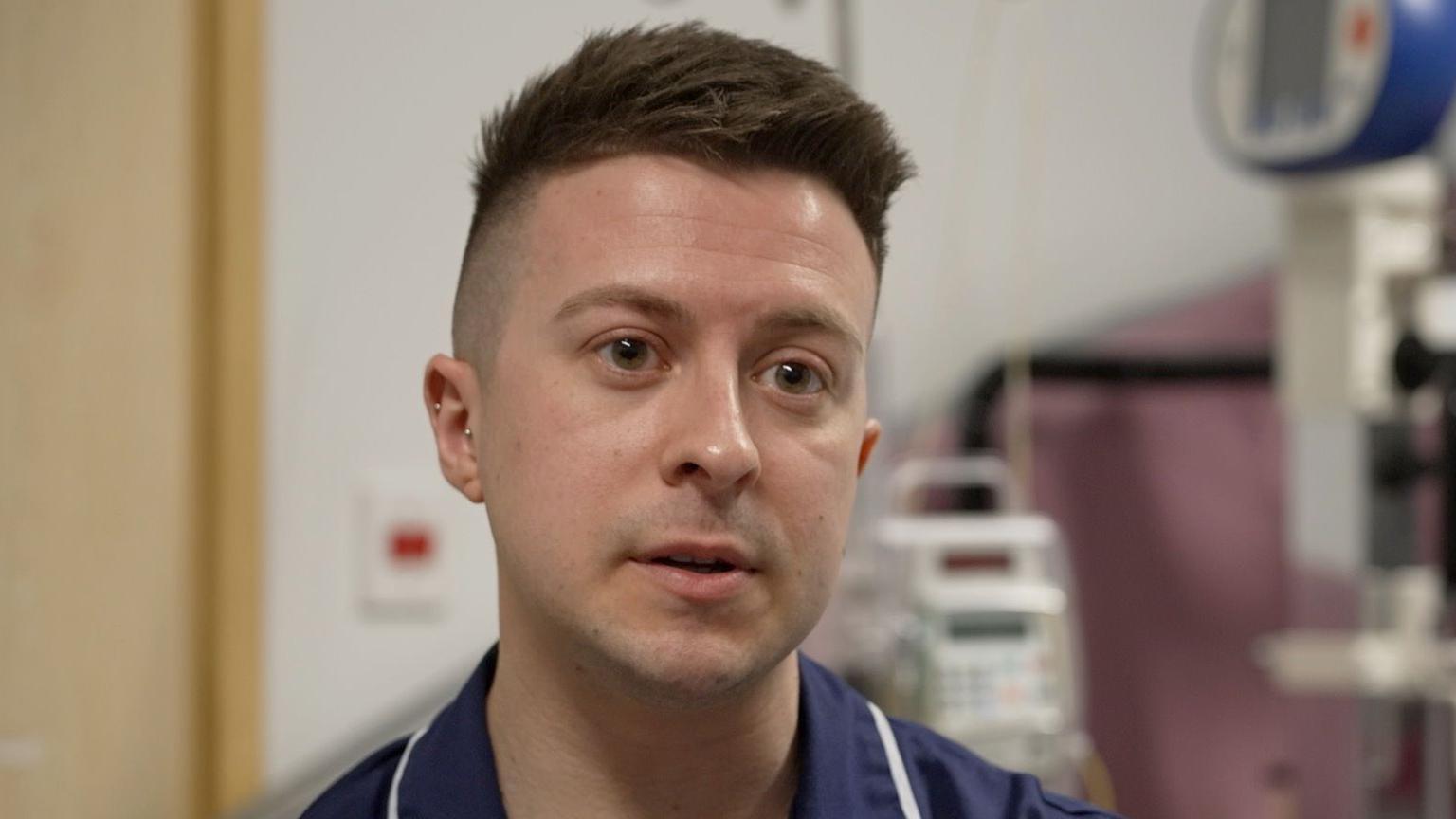
Matt Collis has the job of approaching potential organ donors' families
- Published
"Most organs come from patients who have had quite a sudden and tragic event... something like a very large stroke, or a big heart attack, or a traumatic event."
Former intensive care nurse Matt Collis specialises in talking to the families of such patients, delicately broaching the subject of whether they want their loved ones' organs to be given to others.
The stark reality is that less than 1% of people who die in the UK do so in circumstances which allow them to donate their organs.
A long illness means the whole body is weakened, and a death outside of hospital means organs quickly deteriorate.
Virtually all donors end their lives in intensive care units.
I ask Matt how potential donors' families first react when he approaches them.
"Normally it’s shock and it’s not something they’ve considered," he says, "but most of the time once we sit down and explain the benefits of organ donation... most agree."
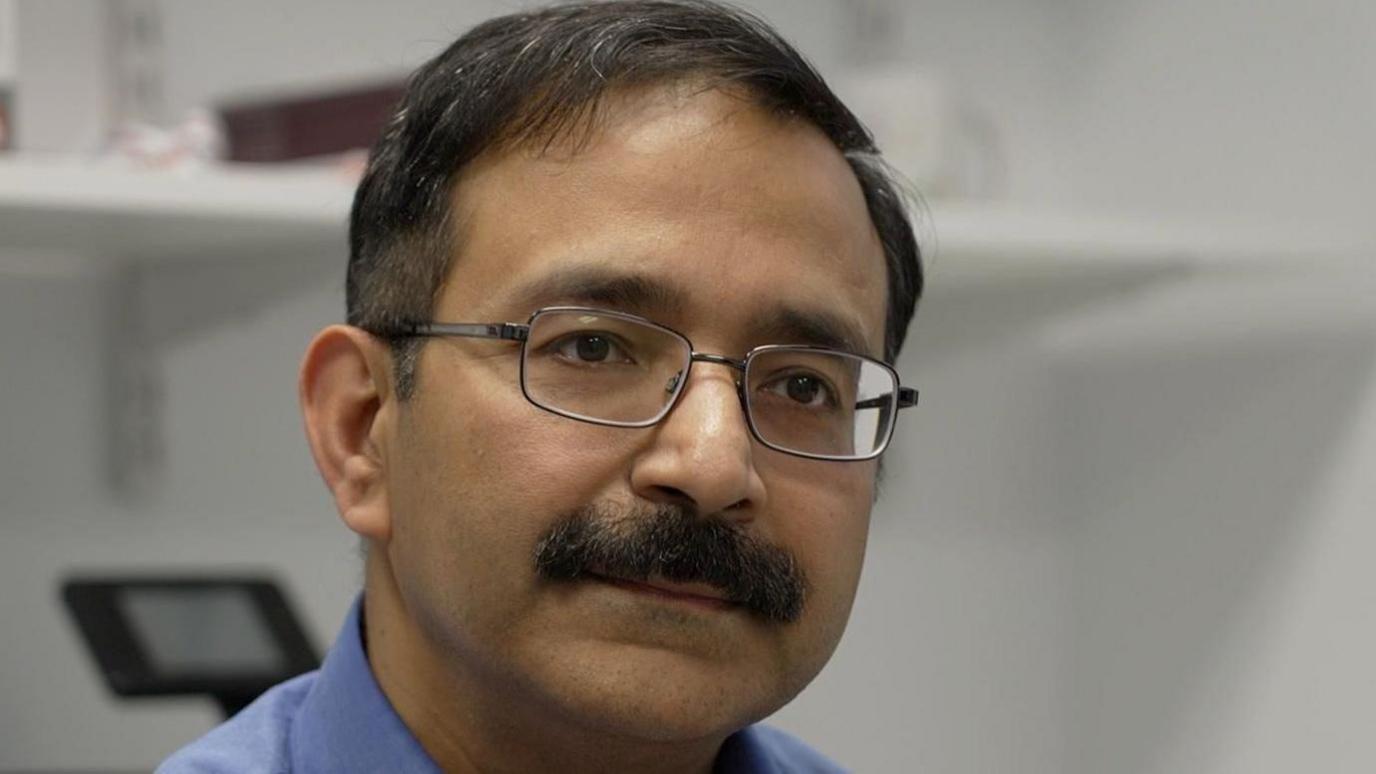
Vipin Mehta leads the organ retrieval team in Manchester
In the UK there are strict ethical guidelines on donation.
The patient will be treated by their own medical team until their death. Only then will the retrieval team, which saves their organs, see them.
Consultant Vipin Mehta heads the retrieval team at the Wythenshawe Transplant Centre in Manchester, one of only six such units in the country.
"It’s very emotionally draining in the beginning, especially when you start doing the retrieval process and you see what the donor has gone through," says Mr Mehta.
"So now we always have a moment of silence before we start the retrieval process."
More transplant stories
'My life would've ended five years ago' without heart pump
- Published2 May 2024
Heart transplants: How do they work and how are they organised?
- Published1 May 2024
Lung transplant recipient thanks 'true hero' donor
- Published30 April 2024
Every transplant patient is acutely aware that their chance of survival is dependent on someone else’s life ending.
Wythenshawe has a team of psychologists who help recipients come to terms with this.
"A big one is thinking about 'survivor guilt' for example, and I think that can be a real pressure for people after transplant," says consultant clinical psychologist Dr Zoey Malpas.
"They feel this overwhelming urge that they should be doing something amazing with their life. Actually people are really fearful that they’ve got this precious organ and they don't want to do anything that’ll risk it."
The centre also runs a monthly group, the Transplant Café, for pre- and post-transplant patients to talk about any issues.
Patients are also encouraged to write an anonymous letter of thanks, which is given to the donor’s family by the centre.
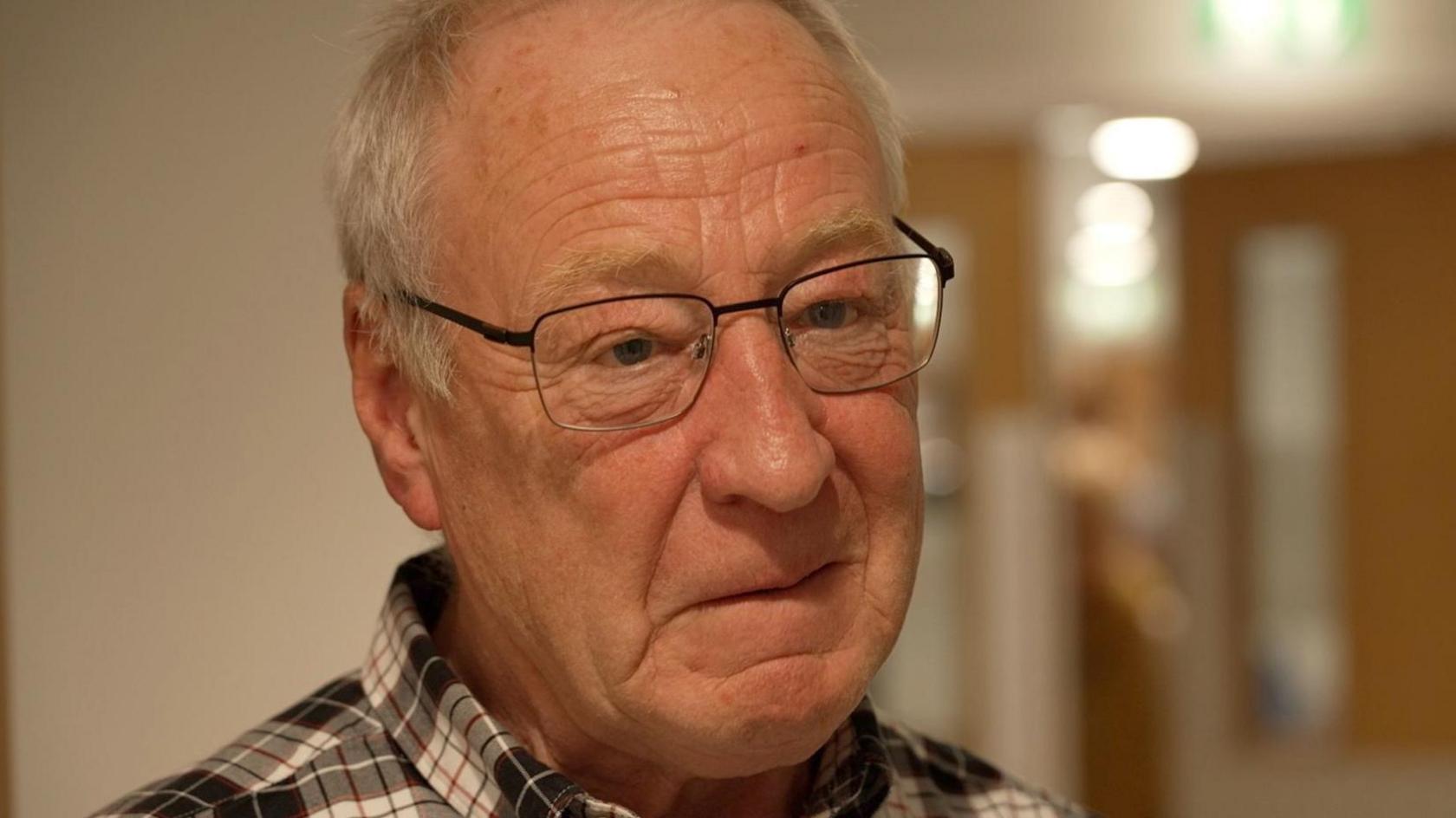
Gary Lee is 'so grateful' for a second chance at life
Gary Lee received a heart transplant five years ago.
"I was literally dying" he remembers. "My organs kept shutting down."
Gary, like everyone I speak to, says he often thinks about the person who allowed him to live.
As a way of expressing his gratitude he says whenever he and his wife go abroad or away anywhere, "we always look for a church and we always light candles for our donors and donor families everywhere we go".
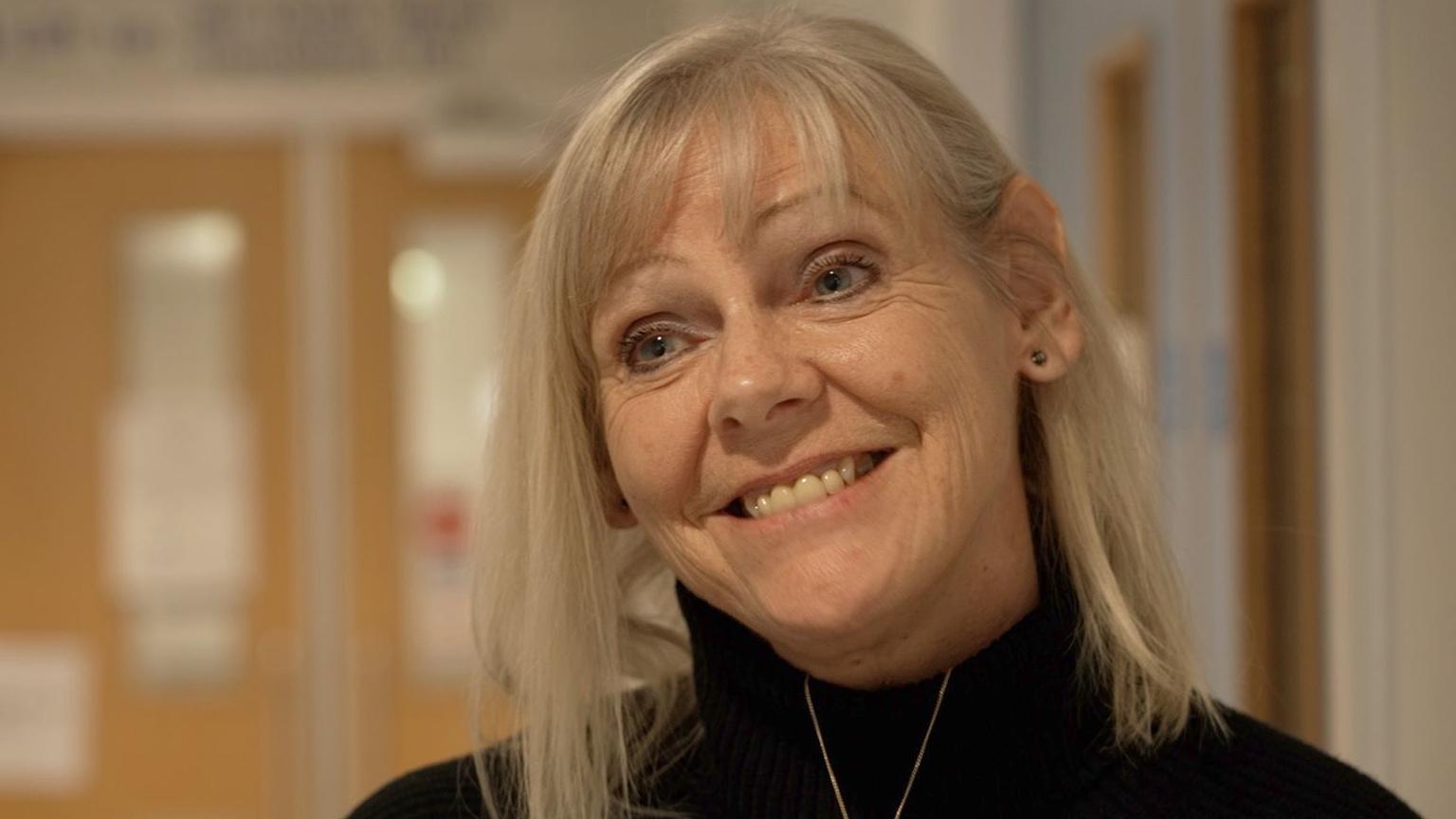
Deborah Horrocks received her new heart four years ago
Deborah Horrocks had a heart transplant in 2020.
"I’m just so grateful that it happened - it gave me a second chance," she says.
"Both of my children got married last year and I’ve got a grandson, and all this I wouldn’t have been able to see..."
Deborah pauses, temporarily unable to speak, before continuing: "Because I wouldn’t have been here."
In the eyes of the law, every patient is a potential organ donor, unless they’ve opted out.
In practice, though, families have to give their consent.
And many just don’t know what their relative would have wanted.
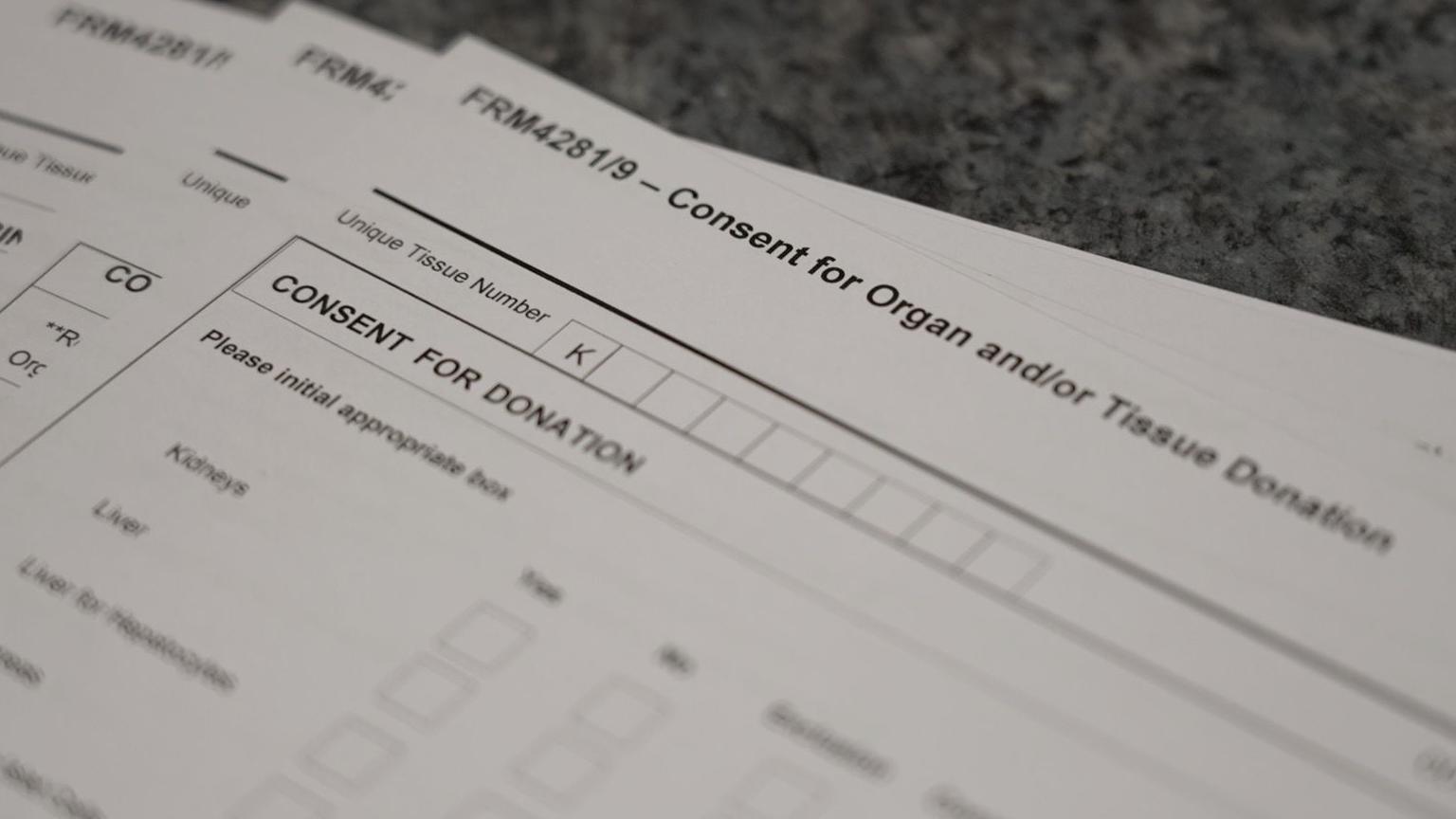
In the UK there are strict ethical guidelines on organ donation
Matt Collis says the situation is made far easier when someone has registered a decision to donate on the organ register, even though it is no longer a requirement.
"In my experience, that makes it very clear for families to understand that this is what their loved one wanted, and that I am there to help them with that," he says.
Matt keeps in touch with donor families for several months afterwards, sometimes even longer.
Once a year a special ceremony is held for every family to celebrate their loved one’s life.
"These patients are so special and they have such an impact on transplant recipients," Matt says.
"I find that the families that I still speak to a year, two years down the line, they say that organ donation has really helped them. Because the death wasn’t for nothing.”
I say to Matt that he obviously finds his job very rewarding.
He smiles and says: "The families that donate are just wonderful.
"I find it amazing that in their time of grief and a time when their world has ended that they are willing and able to help other people."